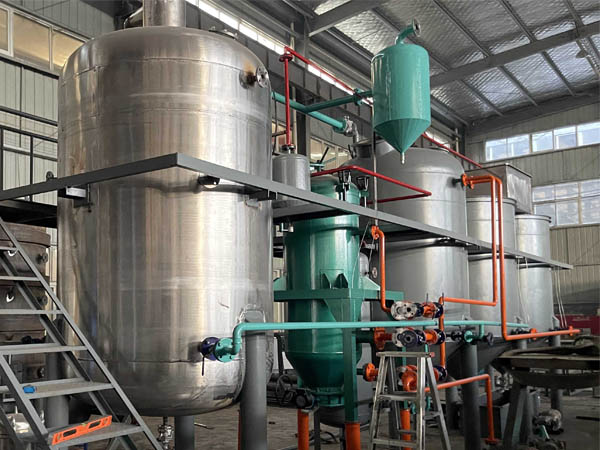
Canola Oil Refining & Processing
Canola oil refining is a crucial step in transforming crude canola oil into a high-quality, edible product. The refining process removes impurities such as phospholipids, pigments, off-flavors, free fatty acids, and other unwanted compounds, ensuring stability, extended shelf life, and improved taste.
As an ISO 9001:2008 certified company, KMEC is a leading manufacturer and exporter of Canola Oil Refining equipment. We provide:
🔹 Customized canola oil processing solutions
🔹 Advanced refining technology
🔹 Turnkey project installation & support
What Makes Canola Oil Unique?
Canola oil, also known as rapeseed oil, is one of the most widely consumed vegetable oils in the world, favored for its high nutritional value, low saturated fat content and high levels of heart-healthy monounsaturated fats. To meet industry standards, Canola Oil Processing Plants employ advanced refining techniques, including hydration, alkali refining, bleaching, and deodorization.
Key Stages in Canola Oil Refining
1. Hydration (Dephosphorization)
Hydration is the first step in Canola Oil Refining, where water is added to crude oil to remove hydrophilic phospholipids. This process helps separate gums and other water-soluble impurities, improving oil clarity and stability. The separated phospholipids can be further processed into lecithin, a valuable byproduct used in food and industrial applications.
2. Alkali Refining (Neutralization)
Alkali refining involves treating crude canola oil with a caustic soda (sodium hydroxide) solution to neutralize free fatty acids (FFAs). The reaction forms soapstock, which is removed via centrifugation. This step also eliminates residual gums, proteins, and trace metals, enhancing oil purity and preventing oxidation.
3. Bleaching (Decolorization)
Bleaching is essential for removing color pigments (chlorophyll, carotenoids) and residual oxidation products. The oil is mixed with activated bleaching clay or carbon under controlled temperature and vacuum conditions. This adsorption process ensures a lighter, more uniform oil color while improving oxidative stability.
4. Deodorization (Steam Distillation)
Deodorization is the final refining stage, where steam distillation removes volatile compounds responsible for off-flavors and odors. Conducted under high temperature and vacuum, this step eliminates peroxides, aldehydes, ketones, and other undesirable substances, resulting in a neutral-tasting, high-quality canola oil.
Why Invest in a Canola Oil Processing Plant?
The global demand for Canola Oil Processing continues to rise due to its health benefits and versatility in cooking, frying, and food manufacturing. Major producers include: European Union, Canada, China, India & Australia.
A Canola Oil Processing Plant offers profitable opportunities for investors, as refined canola oil is widely used in:
- Household cooking oils
- Food industry (margarine, snacks, baked goods)
- Biofuel production
- Animal feed byproducts (meal)
KMEC: Your Trusted Partner in Canola Oil Refining Solutions
For more details on Canola Oil Processing Plants, refining techniques, and industry trends, stay tuned to our updates or reach out to our expert team! Whether you’re establishing a new Canola Oil Processing Plant or upgrading existing facilities, KMEC delivers reliable, efficient, and cost-effective solutions.
Contact us today for expert consultation!


Leave a Reply